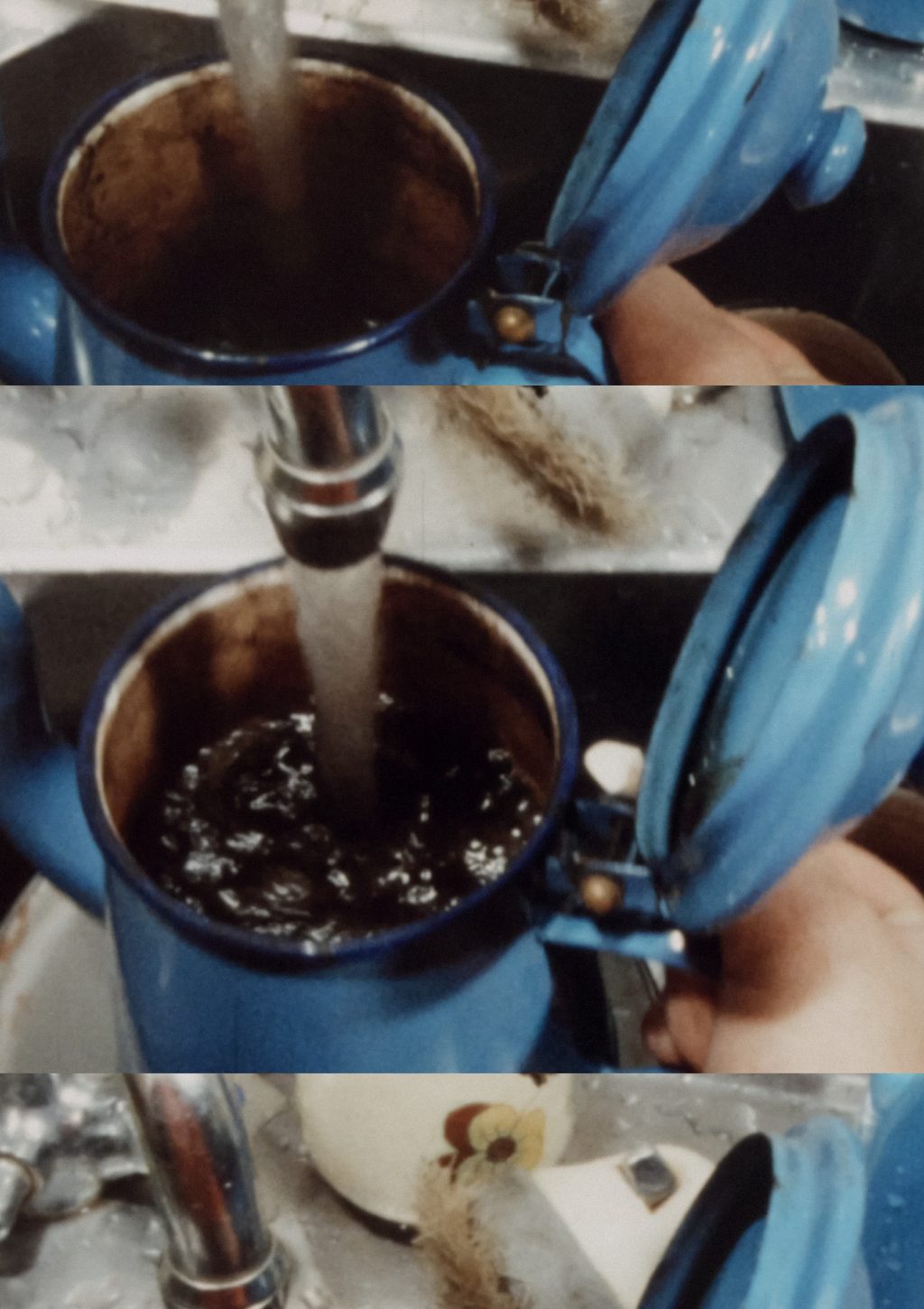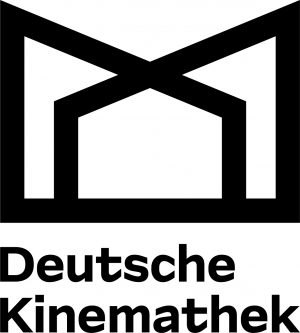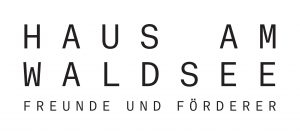
Margaret Raspé, Alle Tage wieder – let them swing! (collage), 1974, Super 8, colour, without sound, 20 min., film still, Courtesy the artist and Deutsche Kinemathek, Berlin
Margaret Raspé
Automatik
3.2. – 29.5.2023
To be read stuttering:
A a a a
aa aa
Autoto toto toto
Automa mama
ma matik
Automamatik
Automatik
tiktik tiktik
tiktik tiktik
Margaret Raspé, Automatik, 1970
Automatik is the first comprehensive retrospective exhibition by Berlin-based artist Margaret Raspé (b. 1933 in Wrocław, d. 2023 in Berlin). Over the past five decades, Raspé has created a significant body of work in the immediate vicinity of the institution, developing an idiosyncratic artistic language that considers life and art, and their everyday conditions, in unison. With this exhibition, Haus am Waldsee tells the story of a radically local art history of global relevance, mirroring the dynamics of its own institutional history.
In addition to her acclaimed film works from the 1970s and 80s, Raspé’s oeuvre consists of performances, photo series, sound works, and large-scale installations in both indoor and outdoor settings. The investigation of perceptual processes is central to her practice. Ephemeral approaches that respond distinctly to their environments are employed to investigate given societal structures, using lived realities as a starting point.
As early as 1971, Raspé developed the so-called ‘camera helmet’ before these were industrially available: a construction site helmet equipped with a Super 8 camera that captures the central perspective of the artist’s gaze and enabled her to film her everyday life. The resulting films show the artist performing routine tasks, including housework, which are usually executed rather unthinkingly, or automatically. Raspé’s hands can be seen in clinical detail, whipping cream into butter in Der Sadist schlägt das eindeutig Unschuldige, 1971, baking a cake in Backe Backe, Kuchen, 1973, or washing up in Alle Tage wieder – let them swing!, 1974. Besides lending visibility to often invisible, ordinary chores, the films also bear witness to the mostly unconscious physical processes at work. These automated actions are sometimes violent in the way they transform their matter, but equally remain banal. The automatic is examined as a process that takes place between cerebral and manual work. The body is considered as a programmable ‘Mensch-Maschine’ (human machine) or as a ‘Frautomat’ (female robot), to which the camera helmet acts as a prosthetic extension and enables the viewer to experience the artist’s own perspective, universally mirrored.
The exhibition at Haus am Waldsee juxtaposes Raspé’s early films with her later works, which address issues of ecology, sustainability, theories of perception, spirituality, and healing. What they each share is a search for other forms of knowledge production and the awareness that our everyday environment is imprinted in the bodies, beings, and objects that surround us. Raspé opened her house and the adjoining garden in Rhumeweg in Berlin-Zehlendorf early in her career, as a place for discursive artistic exchange. Artists, academics, authors, and activists primarily associated with the Vienna Actionists and the Wiener Gruppe as well as the Berlin Fluxus scene were closely connected to the house and regularly came together for artistic and social formats composed by Raspé.
Margaret Raspé studied painting and fashion at the Kunstakademie München and at the Hochschule für Bildende Künste, Berlin, between 1954 and 1957. In the early 1970s she developed the camera helmet and began producing camera helmet films, followed by a subjective ethnographic film about the ritual of the Greek anastenaria (fire walkers), 1978–85. Raspé’s experimental works have so far only received fragmentary institutional reception in Germany, but her films attracted international attention early on and were shown at the Anthology Film Archives, New York, and the Hayward Gallery, London, among others. Her films are part of the collections of the London Filmmakers’ Coop and the Deutsche Kinemathek, Berlin.
The exhibition is accompanied by a catalogue designed by HIT Studio, with with contributions by Karolin Meunier, Ghislaine Leung, Kari Rittenbach and Emily LaBarge, among others. Published by Verlag der Buchhandlung Walther und Franz König.
Automatik is a cooperation with the Badischer Kunstverein, where the exhibition will be on view from 22 July to 17 September 2023.

Trailer Margaret Raspé – Automatik
The exhibition is supported by:
In Cooperation with:

Press Reviews
Margaret Raspé on automatism and the art of attention, As told to Camila Mc Hugh, artforum.com, Feb 17, 2023
“Raspé’s well-justified rage – at gender expectations, at pollution, at the dehumanising creep of technology – clearly drove her prodigious output but again, despite the apparent simplicity of much of her work, the artist continually resists oversimplification. Just when you think you have a handle on Raspé, she knocks you sideways with something new.” Rachel Pronger, Art Monthly, Issue 465: April 2023



